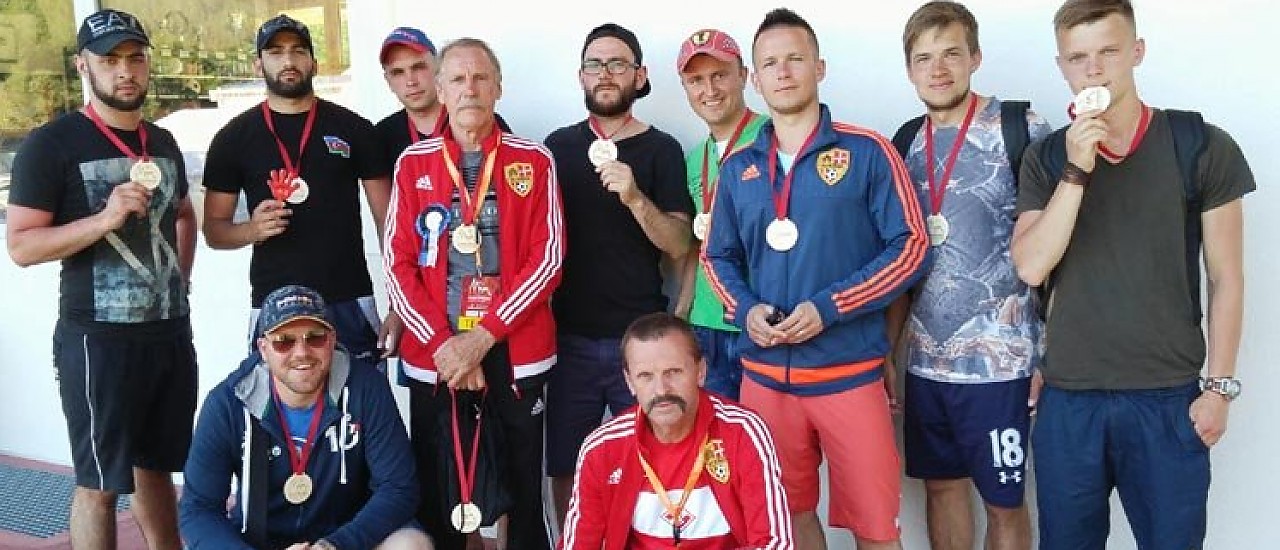Eestimaa Rahvuste Ühendus
The team "Estimaa Rahvuste Ühendus ", in German "Estonian compound of Nations", is representing the linguistic minority of Estonia and its people. Barely 70% of the approximately 1.5 million residents are Estonians, the rest consists of more than 100 nationalities. According to the census of 2000, 109 languages are recently spoken in Estonia. Russians are representing the largest minority group with nearly 26%, followed by Ukrainians (2.1%), Belarussians (1.2%), Finns (0.8%), Germans, Latvians and Polish. The composition of the population has been affected by various historical events. The Second World War and the subsequent Soviet occupation led to significant changes in the population structure. The migration policy brought after the war a Sovietization with new populations from various regions of the Soviet Union. After the independence of the Republic of Estonia, in 1993 the legal status of minorities was added to the Constitution, and they finally became a cultural autonomy. Coupled with this are the promotion of language by mother tongue education. Estonia is one of the few states, where in addition to the schools in the state language, a school network in minority languages is part of the state funded public education system.
Estimaa Rahvuste Ühendus at the EUROPEADA
The minorities of Estonia participated in 2012 at the EUROPEADA and reached the 16th place.
The squad for the 2016 EUROPEADA
Aleksander Kalinin (1987 - Moldavien), Erü Dmitri Tarasenko (1989 - Latvian), Tarmo-Erik Hutunnen (1994 - Finn), Hans-Gabriel Siim (1994 - Estonian), Mirza Gassimov (1995 - Azerbaijani), Rauf-Roman Mihailov (1995 Turkmen), Ivan Vakull (1986 - Belarusian), Spartak Ljasenko (1988 - Kirghiz), Levani Laglilava 1991 - Georgian), Dmitri Martsenko (1980 - Russian), Artur Lipnikov (1979 - Russian), Pavel Gabrieljan (1991 - Armenian), Mikhail Lyashenko (1960 - Kirghiz), Radzivil Dmytro (1991 - Ucrainian),
Ossip Skultsus (Coach - Pole), Ants Juhvelt (Head - Estonian)








